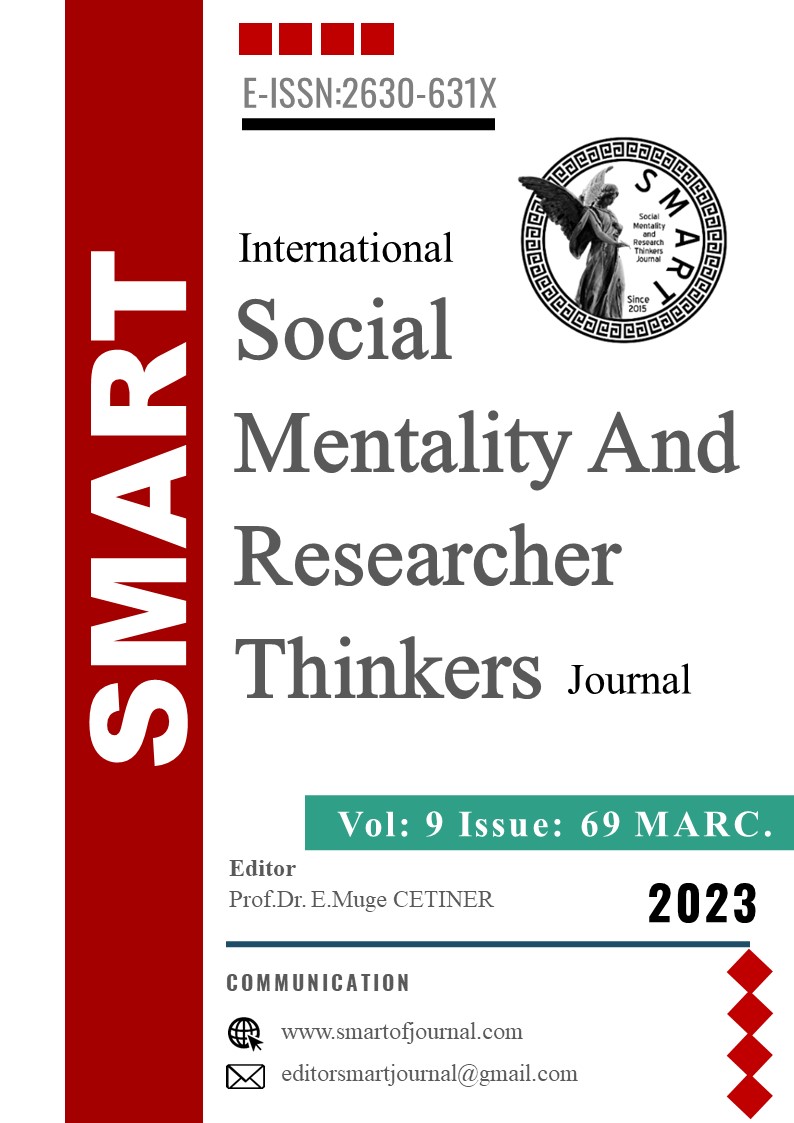Author :
Abstract
İnsan sosyal bir varlıktır ve çevresinden ayrı düşünülemediği gibi çevresinden ayrı da davranamaz. Ait olduğu toplumun inanış ve ritüellerini benimseyen, uygulayan ve gelecek kuşaklara aktaran bireyin yaşamında önemli geçiş dönemleri vardır. Doğum, evlilik ve ölüm olarak adlandırılan bu geçiş dönemleri, bireyin yeni durumuna uyum sağlaması adına birtakım inanış ve uygulamaları da beraberinde getirir. Bireysel ve toplumsal anlam ve işlevleri olan bu inanış ve uygulamalar, kültürün oluşumunda önemli bir yere sahiptir.
Yaşamın içindeki insan üzerinde çok büyük etkileri olan geçiş dönemi gelenek, inanış ve uygulamalarının gelecek kuşaklara aktarılması, somut olmayan kültürel mirasın korunarak yaşatılması adına önemli bir adımdır. Geçiş dönemlerinden ilki olan doğum fiziksel ve biyolojik bir olgu olmakla birlikte aynı zamanda kültürel ve sosyal bir durumdur. Dünyaya yeni gelen bebek bakıma ve korunmaya muhtaçtır. Bebeğin gözlerini açtığı yaşama ve ait olduğu topluma tutunabilmesi anneye bağlıdır. Anne ve bebeği bekleyen bu uyum süreci ve ait oldukları topluma dahil oluşları inanış, uygulama ve ritüeller aracılığı ile gerçekleştirilir.
Bu çalışma, Isparta Şarkikaraağaç ilçesindeki insan hayatının başlangıcı olan doğum ile ilgili inanış ve uygulamaları tanımlamayı ve bu uygulamaları değerlendirmeyi amaçlar. Çalışmada konuyla alakalı çeşitli inanışları tespit amacıyla kaynak kişi görüşlerine başvurulmuştur. Çalışma sonucunda elde edilen verile ışığında, adet ve inanışların bir kısmının günümüzde halen eskisi gibi, bir kısmının çeşitli değişimlere uğrayarak yaşatılmakta olduğu bir kısmının ise tamamen ortadan kalktığı gözlemlenmiştir.
Keywords
Abstract
Human is a social being and cannot act separately from his environment as well as cannot be thought of separately from his environment. There are important transition periods in the life of the individual who adopts, implements and transfers the beliefs and rituals of the society to which he belongs to future generations. These transition periods, called birth, marriage and death, bring along some beliefs and practices to adapt to the new situation of the individual. These beliefs and practices, which have individual and social meanings and functions, have an important place in the formation of culture.
Transferring the traditions, beliefs and practices of the transition period, which have great effects on the human being in life, to future generations, is an important step in maintaining the intangible cultural heritage. Birth, which is the first of the transition periods, is a physical and biological phenomenon, but it is a cultural and social situation. The newborn is in need of care and protection. It is up to the mother to live and hold on to the society to which the baby belongs. This adaptation process waiting for the mother and the baby and their inclusion in the society they belong to are realized through beliefs, practices and rituals.
This study aims to define the beliefs and practices related to birth, which is the beginning of human life in Isparta Şarkikaraağaç district, and to evaluate these practices. The study consulted the opinions of the source persons to determine various beliefs related to the issue. The data obtained as a result of the study show that some of the traditions and beliefs are still as before, some are kept alive by undergoing various changes and some are completely disappeared.





